Related Research Articles
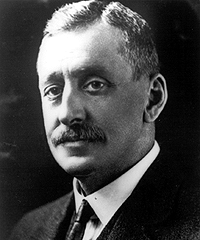
Major General James William Macarthur-Onslow, was a soldier, grazier and politician. The son of a prominent New South Wales family, he was commissioned in the New South Wales Mounted Rifles in 1892 and served in the Chitral Expedition, Second Boer War and the First World War. Afterwards he served in the New South Wales Legislative Assembly and New South Wales Legislative Council.
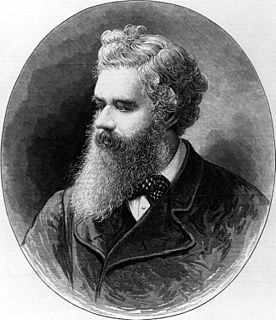
John Douglas was an Anglo-Australian politician and Premier of Queensland.

Sir John Hay was a New South Wales politician.
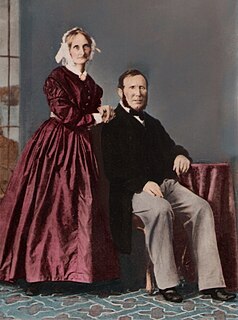
Stephen Scholey was a Member of the Legislative Assembly of the British colony of New South Wales, Australia. He was born in Garden street, Holbeck village, near Leeds, West Riding of Yorkshire, England, and died at East Maitland, New South Wales.
Cumberland was an electoral district of the Legislative Assembly in the Australian state of New South Wales from 1856 to 1859, in Cumberland County, which includes Sydney. It included all of the county north of Parramatta Road and the Great Western Highway, except for the urban electorates of Sydney (City), Sydney Hamlets, Parramatta and Cumberland Boroughs, which included Richmond and Windsor. It elected two members simultaneously, with voters casting two votes and the first two candidates being elected. It was abolished in 1859 and the district was divided between Central Cumberland, Windsor, Nepean and St Leonards.
Sir John Bayley Darvall was an Australian barrister, politician and beneficiary of slavery. He was a member of the New South Wales Legislative Council between 1844 and 1856 and again between 1861 and 1863. He was also a member of the New South Wales Legislative Assembly for three periods between 1856 and 1865. He held the positions of Solicitor General and Attorney General in a number of short-lived colonial governments.
Elias Carpenter Weekes was an Australian ironmonger and politician. He was a member of the New South Wales Legislative Council between 1865 and 1880. He was also a member of the New South Wales Legislative Assembly between 1856 and 1864. He served two terms as the Colonial Treasurer of New South Wales.

Sir John Lackey was a magistrate and politician in colonial New South Wales, President of the New South Wales Legislative Council 1892 to 1903.
This is a list of members of the New South Wales Legislative Council from 1843 to 1851. The 1843 Electoral Act prescribed 36 members, 24 to be elected, 6 appointed by virtue of their office and 6 nominated. The appointments and elections were for five year terms and thus occurred in 1843,</ref> and 1848. The parliament was dissolved on 30 June 1851 as a result of the 1851 Electoral Act which increased the number of members in the Council to 54.

The Electoral district of County of Bathurst was an electorate of the New South Wales Legislative Council at a time when some of its members were elected and the balance were appointed by the Governor.

The Electoral district of County of Cumberland was an electorate of the New South Wales Legislative Council at a time when some of its members were elected and the balance were appointed by the Governor.
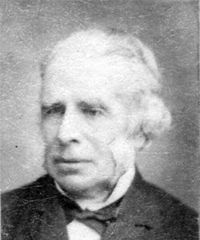
William Adams Brodribb was an Australian pastoralist and politician.
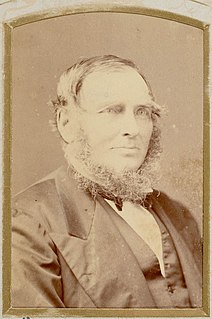
Charles Moore was an Irish-born Australian politician.
A by-election was to be held for the New South Wales Legislative Assembly electorate of Cumberland North Riding on 11 December 1857 because of the resignation of John Darvall.
A by-election was held for the New South Wales Legislative Assembly electorate of Cumberland North Riding on 19 June 1856 because John Darvall had been appointed Solicitor General in the Donaldson ministry.
A by-election was held for the New South Wales Legislative Assembly electorate of Cumberland North Riding on 16 October 1856 because John Darvall had been appointed Solicitor General in the Parker ministry.
A by-election was held for the New South Wales Legislative Assembly electorate of East Maitland on 11 August 1863 because John Darvall had been appointed Attorney General in the third Cowper ministry. Such ministerial by-elections were usually uncontested however on this occasion the appointment of Darvall was controversial, not only was he a conservative appointed to the liberal ministry, but because John Hargrave, who had been Attorney General since January 1861, accepted the lesser role of Solicitor General to allow Darvall to be appointed.
A by-election was held for the New South Wales Legislative Assembly electorate of East Sydney on 17 February 1865 because Charles Cowper had been appointed Premier and Colonial Secretary, forming the fourth Cowper ministry. Such ministerial by-elections were usually uncontested however on this occasion a poll was required in East Sydney, The Glebe and West Sydney. Each minister was comfortably re-elected. Only The Paterson was uncontested.
A by-election was held for the New South Wales Legislative Assembly electorate of The Glebe on 17 February 1865 because Thomas Smart had been appointed Colonial Treasurer in the fourth Cowper ministry. Such ministerial by-elections were usually uncontested however on this occasion a poll was required in East Sydney, The Glebe and West Sydney. Each minister was comfortably re-elected. Only The Paterson was uncontested.
A by-election was held for the New South Wales Legislative Assembly electorate of West Sydney on 18 February 1865 because John Darvall had been appointed Attorney General, and John Robertson had been appointed Secretary for Lands in the fourth Cowper ministry. Such ministerial by-elections were usually uncontested however on this occasion a poll was required in East Sydney, The Glebe and West Sydney. Each minister was comfortably re-elected. Only The Paterson was uncontested.
References
- ↑ Rathbone, R W. "Darvall, Sir John Bayley (1809 - 1883)". Australian Dictionary of Biography . Melbourne University Press. ISSN 1833-7538 . Retrieved 8 September 2014– via National Centre of Biography, Australian National University.
- ↑ "Sir John Bayley Darvall MA, QC (1809-1883)". Former Members of the Parliament of New South Wales . Retrieved 18 April 2019.
- ↑ "Writ of election: West Sydney". New South Wales Government Gazette (139). 28 June 1865. p. 1433. Retrieved 7 September 2020– via Trove.
- ↑ Green, Antony. "July 1865 West Sydney by-election". New South Wales Election Results 1856-2007. Parliament of New South Wales . Retrieved 7 September 2020.